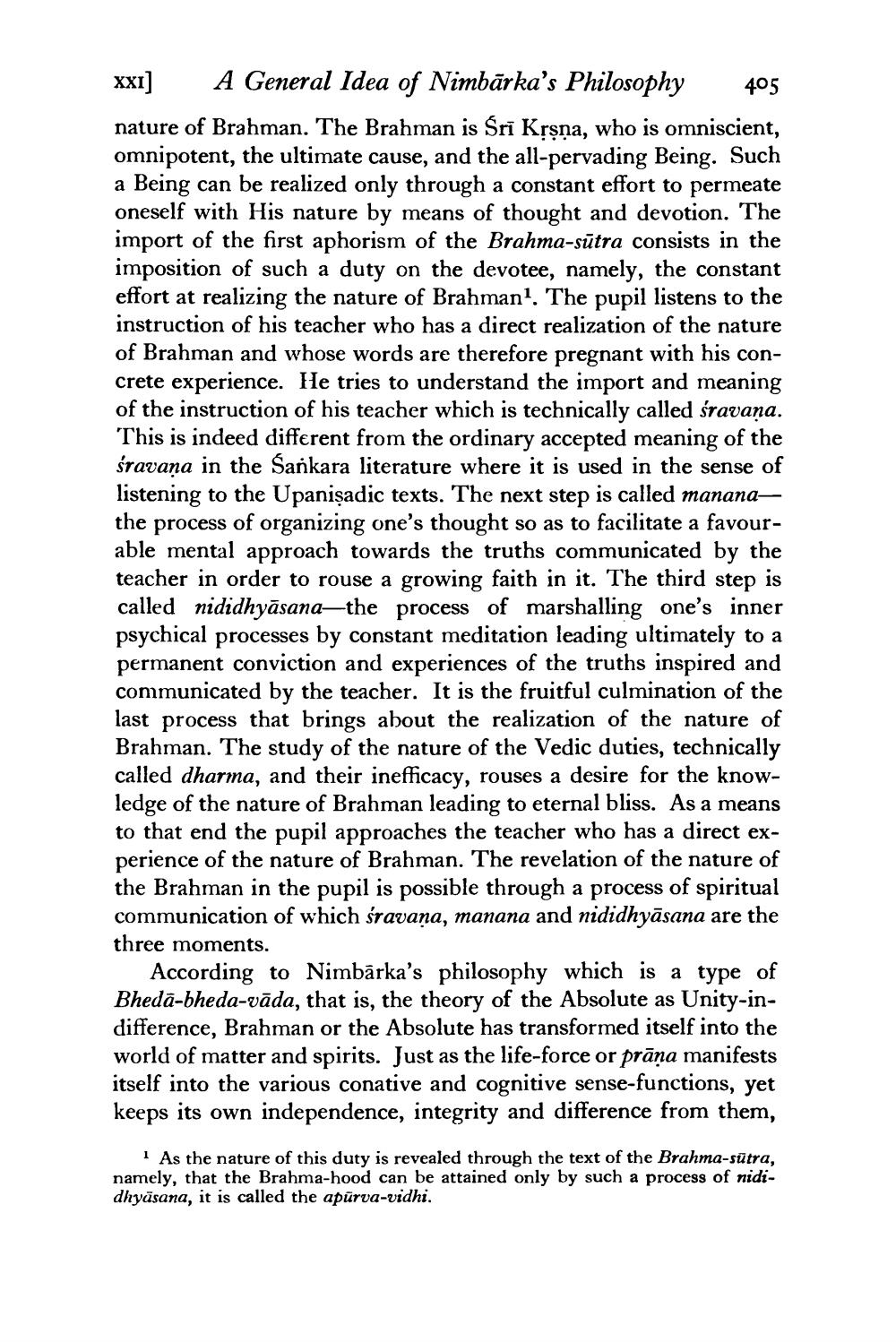________________
XXI] A General Idea of Nimbārka's Philosophy 405 nature of Brahman. The Brahman is Sri Krsna, who is omniscient, omnipotent, the ultimate cause, and the all-pervading Being. Such a Being can be realized only through a constant effort to permeate oneself with His nature by means of thought and devotion. The import of the first aphorism of the Brahma-sūtra consists in the imposition of such a duty on the devotee, namely, the constant effort at realizing the nature of Brahman1. The pupil listens to the instruction of his teacher who has a direct realization of the nature of Brahman and whose words are therefore pregnant with his concrete experience. He tries to understand the import and meaning of the instruction of his teacher which is technically called śravana. This is indeed different from the ordinary accepted meaning of the śravaņa in the Sankara literature where it is used in the sense of listening to the Upanişadic texts. The next step is called mananathe process of organizing one's thought so as to facilitate a favourable mental approach towards the truths communicated by the teacher in order to rouse a growing faith in it. The third step is called nididhyāsana—the process of marshalling one's inner psychical processes by constant meditation leading ultimately to a permanent conviction and experiences of the truths inspired and communicated by the teacher. It is the fruitful culmination of the last process that brings about the realization of the nature of Brahman. The study of the nature of the Vedic duties, technically called dharma, and their inefficacy, rouses a desire for the knowledge of the nature of Brahman leading to eternal bliss. As a means to that end the pupil approaches the teacher who has a direct experience of the nature of Brahman. The revelation of the nature of the Brahman in the pupil is possible through a process of spiritual communication of which śravaņa, manana and nididhyāsana are the three moments.
According to Nimbārka's philosophy which is a type of Bhedā-bheda-vāda, that is, the theory of the Absolute as Unity-indifference, Brahman or the Absolute has transformed itself into the world of matter and spirits. Just as the life-force or prāna manifests itself into the various conative and cognitive sense-functions, yet keeps its own independence, integrity and difference from them,
As the nature of this duty is revealed through the text of the Brahma-sūtra, namely, that the Brahma-hood can be attained only by such a process of nididhyāsana, it is called the apūrva-vidhi.




